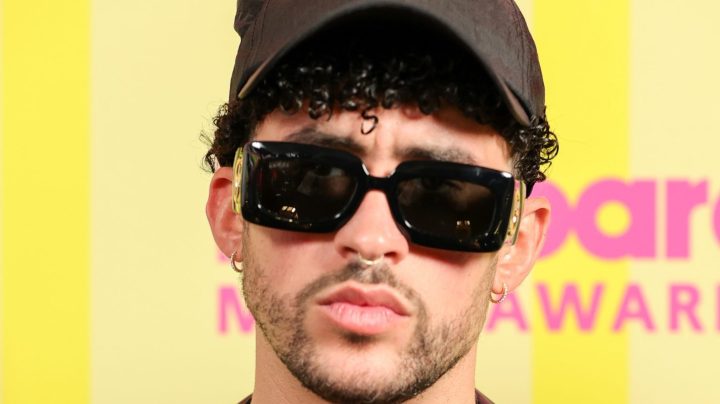Bad Bunny Says His ‘Next Allbum Doesn’t Have Anything To Do With ‘YHLQMDLG”

Photo by Rich Fury/Getty Images for dcp
Bad Bunny is the newest New York Times cover star. In the in-depth feature, the Puerto Rican superstar talks about representing his homeland and taking perreo to the mainstream.
Bad Bunny’s full face, including his signature ‘stash, are on the cover of NYT‘s The Culture Issue. There are other photos where Benito is looking fabulous with his hoop earrings on. The feature was notably written, shot, and arranged by Boricua women, including journalist Carina del Valle Schorske.
In “The World According to Bad Bunny,” he opens by saying, “I feel like I’m an athlete representing Puerto Rico in the Olympics.” As he ascends into the pop mainstream, Benito always has time to point out that his homeland is in need of national financial assistance. A roll of paper towels is not going to cut it.
In the feature, Bad Bunny also opens up about returning reggaetón to its Puerto Rican roots on his album YHLQMDLG. “Since reggaetón went pop all over the world, I don’t feel like people really know the sound that raised me, that I grew up studying,” he says. “This is the album I would’ve wanted to release when I was 15 and dreamed of being a singer.” Benito also hints to the next project, adding, “My next album doesn’t have anything to do with YHLQMDLG.”
In approaching reggaetón’s roots, Bad Bunny is also asked to speak on the genre’s Black origins that are often forgotten in today’s sea of white Latinx reggaetoneros. He admits that’s something he’s still learning about. “As a child, for better or worse, I always lived in my bubble,” Benito says. “Now, I could say – and people do say – it’s a form of privilege. But it’s always been my way of being. Me, in my house and in my bubble, imagining a better, more magical world.”
Another highlight is Bad Bunny talking about gender fluid style. “When I bathe I’m a little bit feminine,” he says. “The idea for ‘Sólo de Mí’ also came to me in the bath.” Benito mentions there was a version of the song where he sang about himself using “tuya” but that he didn’t want the song’s empowering message to be overshadowed by speculation around his sexuality.
The feature is a fascinating look inside the life of one reggaetón’s biggest stars that deserves to be read in full. You can check out the NYT piece here.